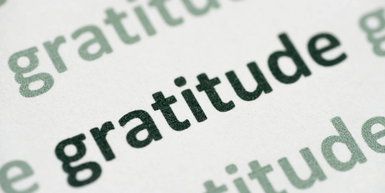17th Jul 2025
The Power of Gratitude After Bariatric Surgery
After bariatric surgery, your life changes in many ways—physically, emotionally, and socially. While much of the focus tends to be on numbers like weight, calories, or lab results, there’s another powerful tool that can make a real difference in your long-term success: gratitude.
Gratitude is more than just saying “thank you.” It’s a mindset that helps you focus on what’s going right, instead of what’s going wrong. And science shows that regularly practicing gratitude can help improve your mental and physical health.
Gratitude Helps Shift Your Focus
It’s easy to dwell on frustrations,but taking time to notice what’s going well—no matter how small—helps you stay motivated and resilient.
It Can Help Reduce Stress and Emotional Eating
By regularly tuning in to the good around you, you create a mindset that’s less reactive and more grounded—and that can mean fewer emotional eating episodes.
Gratitude Improves Body Image
Gratitude can help shift your focus from how your body looks to what it’s capable of.
Grateful thoughts like:
? “My legs carried me through a long walk today.”
? “I’m healing and getting stronger.”
? “My body is working hard for me.”
…can be incredibly healing as you build confidence and self-acceptance.
Start Your Own Gratitude Practice
Action Task: Try Gratitude Journaling This Week
Starting a gratitude journal doesn’t have to be complicated. Set aside five quiet minutes each morning (or evening) to reflect on your blessings. Write down one specific thing you’re grateful for and list out a few detailed reasons why. You can use a notebook, a journal, or simply the notes app on your phone.
In stressful moments, revisit your list. Reading through past entries can help reframe your perspective and bring calm during difficult times.
Why It Works: The Science Behind Gratitude
We often hear that life is 10% what happens to us and 90% how we respond. That’s especially true for bariatric patients managing the emotional and physical changes that come with the journey.
Gratitude journaling helps retrain the brain’s “go-to” response during stress. Instead of defaulting to frustration or self-doubt, a regular gratitude practice can make positive thinking more automatic. Over time, this reduces stress and builds emotional resilience.
The benefits are both emotional and physical:
- Improved mood and stress response
- Better emotional regulation
- Lower heart rate and blood pressure
- A stronger sense of well-being and self-efficacy
The act of acknowledging a warm cup of coffee, a meaningful conversation, or a peaceful moment with a pet can create real, physiological change—signaling to the body that it’s safe and cared for.
Getting Started: Tips for Daily Gratitude
- Pick a time that works for you. Morning coffee? Bedtime wind-down? Even five minutes in the school pickup line can work.
- Choose your tool. Whether it’s a dedicated notebook or a note on your phone, consistency matters more than format.
- Start small. Write down one thing you’re grateful for, then list 3–5 detailed reasons. Make it specific and heartfelt.
- Build momentum. The more detailed and consistent your practice, the more powerful the emotional shift.
Gratitude doesn’t have to be complicated—it just has to be consistent. With a little intention each day, you can shift your focus, lighten your load, and find more peace in the present. Start small, stay steady, and let your gratitude grow into something powerful.

